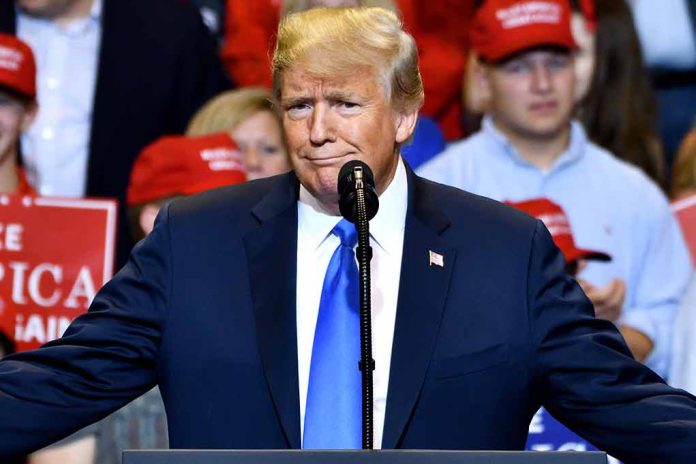
Canadian Prime Minister Mark Carney and President Trump clash over a 25% auto tariff that threatens to unravel decades of integrated trade between neighboring nations.
Top Takeaways
- President Trump has imposed a permanent 25% tariff on all foreign-made vehicles, effective April 2, with Canadian PM Mark Carney calling it a “direct attack” on Canadian workers.
- Carney has promised retaliatory tariffs against American goods and pledged that funds collected will support Canadian auto workers.
- The UAW union supports Trump’s tariff, viewing it as beneficial for bringing back union jobs to America.
- Approximately 50% of vehicles sold in the US are imported, largely from Mexico and Canada under existing trilateral trade agreements.
- This trade confrontation comes at a politically sensitive time as Carney faces elections on April 28.
Carney Takes Strong Stance Against Trump Tariffs
Canadian Prime Minister Mark Carney has launched a fierce response to President Trump’s new 25% tariff on foreign-made vehicles, describing it as a “direct attack” on Canadian workers. The tariff, which takes effect April 2, applies to all automobiles not manufactured in the United States, threatening the integrated auto manufacturing supply chains that have developed between the US and Canada over decades. Carney’s strong language signals a potential breakdown in the traditionally close trade relationship between the two nations at a time when both leaders are seeking to project economic strength.
Standing at the Ambassador Bridge connecting Windsor, Ontario, to Detroit, Michigan – a symbolic crossing point for billions in cross-border trade – Carney addressed the situation directly. The timing is particularly challenging for the Canadian leader, who faces a federal election on April 28 and must demonstrate to voters his ability to protect Canadian jobs in the face of American protectionism. The auto sector remains a critical component of Canada’s manufacturing base, with thousands of jobs and regional economies dependent on continued access to the US market.
Retaliation and American Support for Tariffs
Canada has announced plans to implement retaliatory tariffs against American goods, with Carney promising that revenue generated would be used to support affected Canadian auto workers. The Canadian government is also allowing companies to delay tax payments to help them adjust to the changing trade landscape. Meanwhile, in the United States, the United Auto Workers union has expressed support for Trump’s tariff policy, seeing it as a means to bring manufacturing jobs back to American soil and strengthen the union’s position in the domestic auto industry.
President Trump’s policy aims to incentivize automobile manufacturers to relocate production facilities to the United States, potentially creating American jobs but also likely increasing vehicle costs for consumers in the short term. This approach represents a significant departure from the integrated North American auto manufacturing system that evolved under the NAFTA agreement and its successor, the USMCA.
Economic Realities of Integrated Trade
The automotive industry in North America has developed deep integration across borders, with approximately 50% of vehicles sold in the United States manufactured domestically and the remainder largely imported from Mexico and Canada. The trilateral free trade agreement between these nations has fostered supply chains that frequently see auto parts crossing borders multiple times during the manufacturing process. Trump’s tariff threatens to disrupt this established system, potentially forcing a reorganization of production facilities across North America.
Carney has emphasized Canadian resilience in the face of this challenge, noting that while the tariffs will undoubtedly hurt Canada’s economy, citizens are adapting to the situation. The prime minister has made defending Canadian economic interests a cornerstone of his electoral campaign, meeting with autoworkers and labor leaders to emphasize his commitment to protecting their livelihoods. This stance appears designed to demonstrate economic nationalism that mirrors Trump’s America-first approach, while rallying Canadians around a common external challenge during a politically sensitive period.
Sources:
- Canada will react to Trump’s ‘attack’ soon, could impose tariffs, says Carney
- Canadian PM Mark Carney calls Trump’s new auto tariffs ‘a direct attack’
- Canada PM dubs US auto tariffs ‘direct attack’




